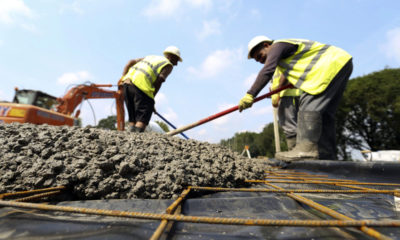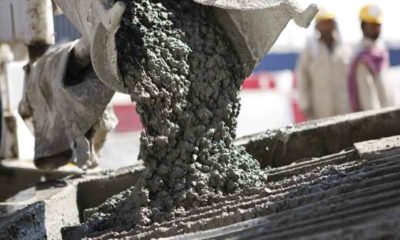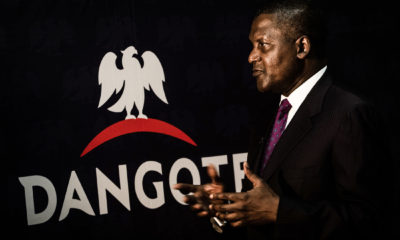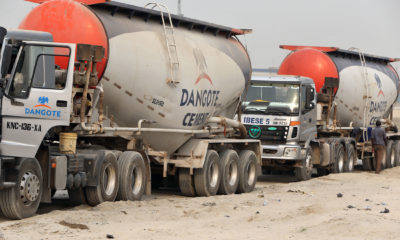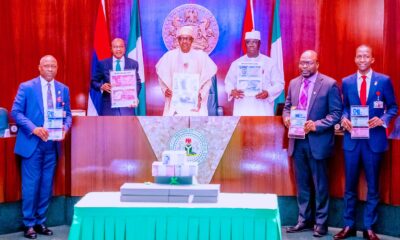Operating in 10 African countries, Dangote Cement has significantly boost Sub-Saharan Africa Economic Development and play major roles in attracting Investors and job creation.
Sub-Saharan Africa is populated by more than half a billion people, and rapid urbanisation is creating challenges in the areas of housing, roads, railways, power supply, dams and water pipelines – aspects of infrastructure that are critical to the well-being of the population.
This situation indicates that cement and concrete will play a major role in construction technology in Africa, an aspect that makes the continent an attractive destination for investors.
The Dangote Group has taken cognizance and advantage of the cement demand in Africa by investing in 10 sub-Saharan counties like Nigeria, Senegal, South Africa, Cameroon, Ethiopia, Tanzania, Zambia, Ghana, Congo, and Sierra Leone.
Remarkably, the Dangote Cement plant has successfully operated in Senegal in the last five years, producing 32.5 and 42.5-grades, thereby offering the domestic market higher-quality cement at competitive prices.
The company’s 1.5Mta factory located in Pout, about 60km from Dakar, was commissioned at the end of December 2014 to take advantage of the geographical strategic location, strong demand and abundant limestone deposits.
Country Manager, Dangote Cement, Senegal, Luk Haelterman, said: “before our entry, the domestic market was almost entirely made up of 32.5-grade cement. Our plant produces 42.5-grade cement, thereby offering the market higher-quality cement at a competitive price, which the construction industry urgently needs.”
Dangote Cement Senegal’s integrated plant is modern, fuel-efficient that uses the latest technology to produce high-quality cement. This enables the company to compete very effectively in a Sub-Saharan cement industry that is fragmented and characterised by smaller-scale operators with older technologies.
Haelterman described Dangote Cement’s investment in Senegal as one of the biggest foreign direct investments by an African company, which is an indication of its strong belief in the future growth of its economy.
He said the market has potential for growth for both local consumption and export, despite being saturated by other cement brands, saying, “apart from capturing the local market in Senegal, we also now export cement to neighbouring countries of Mali, The Gambia and Guinea-Bissau.”
Haelterman attributed the company’s outstanding performance in Senegal to stringent quality assurance processes, which were deployed to ensure that customers get high-quality products that meet all the required technical standards.
According to him, Dangote’s introduction of the 42.5-degree brand of cement to the major market in Senegal upon entry has enabled the company to gain the desired market share in the country.
Luk also disclosed that Dangote Cement Senegal has developed a culture of supporting local employees and prioritising local hiring, which allows local country employees have the necessary knowledge, experience, and support to take up key roles within the company.
He said the policy aims to gradually reduce the number of expatriates employed by the business by enhancing the skills and capacity of Senegalese employees to take up leadership positions.
“We have ensured that our image has been aligned with two key principles from day one: maintaining high quality, and taking a local approach in everything that we do,” he said.
Human resources manager, Dangote Cement, Senegal, Waly Diouf, said the company takes training and development of employees as a priority. “Today, Dangote Senegal has about 800 employees. We make sure that we invest heavily in the training and development of employees. We have a programme, which enables us to boost the skills of local staff at all levels. Dangote Cement Senegal is one of the best plants in Africa. This consistent training of indigenous manpower has made our plant one of the best in Africa ” he disclosed.
Chief finance officer, Dangote Cement, Senegal, Ousmane Mbaye, said the company has contributed significantly to the development of Senegal’s economy, saying, “Dangote Senegal started operation in Senegal in 2015, and between 2015 and 2019, the company has contributed heavily into the Senegalese government treasury, thereby assisting in economic development.”
Head of mines, Dangote Cement, Senegal, Leyti Ndiaye added that “our job is to supply raw materials to the plant and make sure that blending of the limestone is done correctly. We operate under very strict environmental regulations. As a company, we have a sustainable environment management plan so as to reduce environmental degradation during operation as well as restoration of degraded lands after final mine closure.”
Chief executive officer, National Sector Mining Company, Ousmane Cisse commended Dangote Cement for investing massively in the Senegalese economy. “I am very proud to have Dangote Cement in Senegal. Dangote has been able to satisfy the Senegalese cement market since its inception in 2015. When Dangote arrived here, there were two players in the market. Dangote brought quantity and quality products through the introduction of 45.2R. Dangote has helped cement consumers in Senegal to access quality cement products.
“The company is also satisfying markets in the surrounding countries. When you visit Dangote, you will discover that most of the employees are Senegalese. The company has employed Senegalese and ensure adequate capacity building for everybody,” he stated.
The best practices adopted by the Dangote Cement Senegal Plant over the past five years have boosted its production process and quality of its products, with a corresponding positive impact on the economy of the country, Sub-Saharan Africa and the continent as a whole. This is a plus for development.
Dangote Cement has a production capacity of 48.6 million tonnes per year across 10 countries in Sub-Saharan Africa. The Group has integrated factories in seven countries, clinker grinding plant in Cameroon, and import and distribution facilities for bulk cement in Ghana and Sierra Leone. Together, these operations make the Group the largest cement producer in Sub-Saharan Africa.
Based in Nigeria, the Group operates in many of Sub-Saharan Africa’s key cement markets, helping the continent become self-sufficient in this basic commodity. In 2020, it started shipping clinker to West and Central Africa from Nigeria. Its regional strategy stated that it look for markets that have ample limestone, thriving economies, growing populations, and a pressing need for housing and infrastructure.




 Naira4 weeks ago
Naira4 weeks ago


 Naira3 weeks ago
Naira3 weeks ago


 News4 weeks ago
News4 weeks ago
 Travel4 weeks ago
Travel4 weeks ago




 Naira4 weeks ago
Naira4 weeks ago


 Jobs3 weeks ago
Jobs3 weeks ago
 Naira3 weeks ago
Naira3 weeks ago


 Travel3 weeks ago
Travel3 weeks ago

